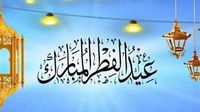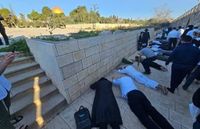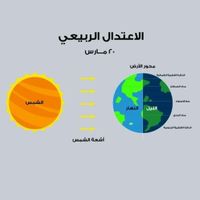On Sunday, March 16, 2025, the Masjid Al-Aqsa witnessed a significant escalation as hundreds of Israeli settlers stormed the area during the Jewish holiday of Purim. This marked the largest incursion ever recorded during this event, with 555 settlers participating, a stark increase compared to previous years.
The historical context for such events dates back to 2003 when systematic incursions into the Al-Aqsa Mosque compound began. Prior to this, the number of settlers storming the site during Purim had fluctuated dramatically over the years. In 2024, 228 settlers participated, while 2023 and 2022 saw 187 and 122 settlers, respectively. The participation rate before these years was relatively low; with only 182 settlers in 2021, 80 in 2020, and a mere 63 in 2019.
Efforts to integrate Purim—a holiday celebrating the Jewish people's survival from persecution—into the contentious narrative surrounding Al-Aqsa have intensified since 2018. Extremist groups have aimed to use the occasion as a means to assert their religious claim over the site. Purim, which honors the story of Esther and Mordechai and their triumph over Haman, the minister who sought to destroy the Jews in ancient Persia, has historically not been linked to Al-Aqsa. However, the framing has changed significantly due to a concerted push by these groups.
Dr. Zead Abuhaysih, a noted commentator on Middle Eastern religious conflicts, explained, "The use of Purim by these groups is not merely about celebration; it's a calculated move to normalize their presence at Al-Aqsa". The connection to the temple is a strategic inclusion in their broader religious claims.
The timing of this year's Purim celebration coincided with the 16th day of Ramadan, making the encroachment particularly provocative for many Palestinians, who regard Al-Aqsa as a cornerstone of their identity and faith. During the incursion, settler participants performed rituals such as collective bowing—referred to as 'epic prostration'—in the eastern courtyard of the mosque. Such acts are seen as provocative and disrespectful by many within the Palestinian community.
Notably, some settlers during their visit chose to recite segments of the Torah loudly throughout Al-Aqsa, thus further escalating tensions. Such actions have typically been perceived as sacrilegious by the Islamic faith and serve to deepen the divides in this complex conflict.
Traditionally, the festivity of Purim includes dressing in costumes, and various settlers opted to don priestly robes, which they interpreted as a way of connecting their current actions to the ancient Jewish temple. This symbolism is not lost on those monitoring the situation, as such attire implies a direct claim over the religious practices historically associated with the temple. For the fourth consecutive year, such clothing was paraded during the Holy Month of Ramadan.
The implications of these events are substantial, with political analysts predicting that the growing number of incursions during religious holidays could exacerbate existing tensions in the region. The situation at Al-Aqsa remains a flashpoint, with the potential for violence lingering as different groups emphasize their competing narratives about the site.
As the global community watches closely, incidents such as these underscore the complexities and sensitivities surrounding religious and cultural claims in Jerusalem.
Many argue that the continued encroachment and the normalization of these aggressive parades could lead to increased instability and further bloodshed. The struggle for Al-Aqsa is not just a matter of land; it encompasses deep-rooted historical grievances, with both sides unwilling to yield to the other's claims.
The recent events highlight the urgent need for dialogue and resolution to these issues. However, given the polarized situation, the prospects for peace remain dim. Al-Aqsa, a symbol of spiritual significance for both Muslims and Jews, continues to be a focal point in the ongoing Israeli-Palestinian conflict, where each incursion raises questions about sovereignty, faith, and human rights.



